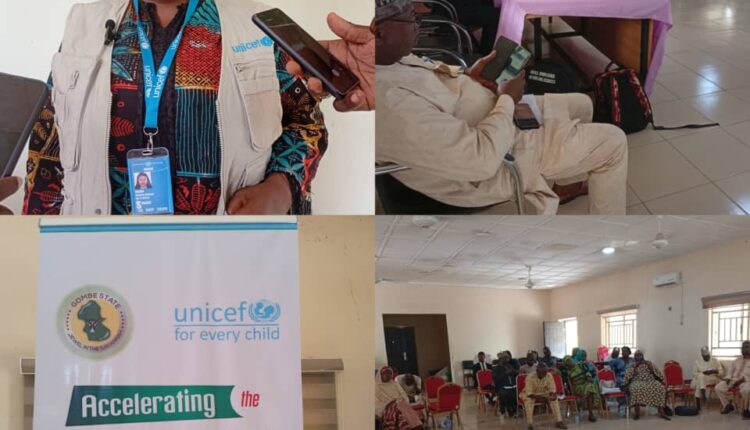How Gombe can improve public health, tackle unemployment through faecal sludge management -Stakeholders
Some stakeholders from Gombe State have advocated for the adoption of faecal sludge management (FSM) to tackle public health issues as well as reduce unemployment amongst youths in the state.
They gave the advice in Gombe on Thursday during a one-day Media Dialogue on Accelerating FSM Strategy Adoption in Gombe State organised by the United Nations Children’s Fund (UNICEF), in collaboration with Gombe State Rural Water Supply and Sanitation Agency (RUWASSA).
Declaring the meeting open, the Commissioner for Water, Environment, and Forest Resources, Mr Mohammed Fawu said many communities in the state rely on on-site sanitation systems such as pot latrines and septic tanks.
Fawu stated that while these systems provide basic sanitation, they pose serious public health and environmental risks when not properly managed.
He stressed that overflowing pits, indiscriminate disposal and ground water contamination were not more inconveniences, “they are threats to human dignity, water security and the health of our population.
He reaffirmed the commitment of the state government to developing a functional, inclusive, and sustainable FSM framework for the state.
In her remarks, the Chief of Field Office (CFO), UNICEF Bauchi Field Office (BFO), Dr Nuzhat Rafique stated that the aimed of the engagement was to sensitise media stakeholders in Gombe State towards pushing for the adoption of FSM in the state.
Rafique represented by Nanbam Michael, Water, Sanitation, and Hygiene (WASH) Officer, UNICEF, Bauchi State Field Office said that the dialogue was part of efforts at accelerating the attainment of open defecation free in Gombe State.
She stated that UNICEF in partnership with the state’s RUWASSA had domesticated the “the Clean Nigeria, Use a toilet” campaign in Gombe State, aimed at pushing for an ODF Gombe State and in all its communities.
She said that it is possible to attain the ODF status in Gombe State just as Jigawa State had done and that UNICEF and its partners at the state level were mobilising people to use the toilet and improve toilet.
She said that UNICEF was already looking ahead to ensure that while people were being mobilised to use the toilets, “and the question why we are here is when this toilets are filled up, now what?
“Jigawa is now ODF and the major challenge there is where to offload the toilet that has been filled up? What can of FSM do we have?
“Now as a state, Gombe has an edge to start preparing for a well FSM before we get there; this is why we are sensitising the media to take up the story on FSM.”
She said that with the ongoing efforts at mobilising communities through the Community Led Total Sanitation approach, she expressed hope that by the end of 2025, there should be communities in the state claiming ODF.
While making his presentation, Prof. Wilson Danbature of the Department of Chemical Sciences, Gombe State University who was a facilitator at the dialogue urged the state government, stakeholders and investors to harness the value chain in FSM.
Danbature said that FSM if properly harnessed had the potential to create numerous jobs across the sanitation value chain, from desludging and treatment plant operations to resource recovery and reuse.
He said that with the growing population and campaign on against open defecation resulting in a large number of toilets relying on on-site sanitation systems, FSM was crucial for addressing public health and environmental concerns while also offering economic opportunities.
“With stakeholders coming in to establish faecal sludge treatment plant (FSTP), it would help improve public health, sanitation, boost revenue for the state and create employment for youths,” he said.
For Dr Abubakar Lumumba, the Sector Lead WASH RUWASSA said proper FSM was critical to addressing concerns on public health as well as improving sanitation.
Lumumba, however called for attitudinal change to address the menace of open defecation in the state, adding that not community in the state has been confirmed ODF.
For Khalid Umar, the Gombe State chairman, Public Convenience Maintenance, who runs a commercial public convenience said he had been making money from the business for the past three decades.
Umar said he rakes in between N7000 and N4000 on daily basis which had helped in cater for his family while also engaging youths to manage his facilities around Gombe Main market.
He urged stakeholders to invest in the business while calling for support to enable them manage the faecal sludge and desludge them properly.



[…] Mohammed Shia’ Al Sudani has ordered a high-level investigation, directing Interior Minister Abdul Amir al-Shammari to form a committee to determine the cause of the […]